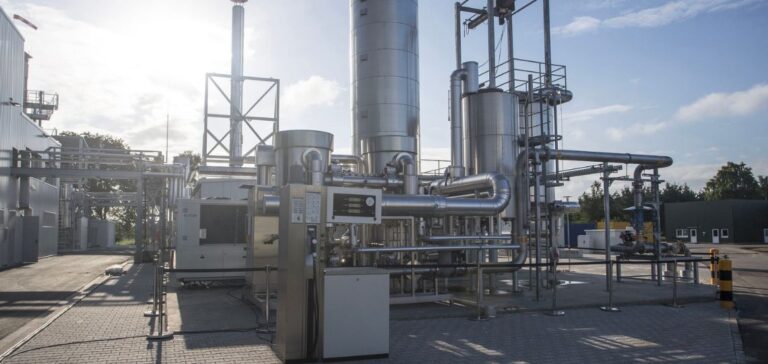E-fuels are making great strides in Sweden. In fact, FlagshipONE, the Swedish project gets the environmental permit for the largest e-fuel installation in Europe. A new energy source that aims to reduce CO2 emissions.
The largest e-fuel installation in Europe
FlagshipONE, jointly owned by Liquid Wind and Ørsted, has received the environmental permit for the construction of its project. For Claes Fredriksson, CEO and founder of Liquid Wind, this is a milestone:
“Obtaining the environmental permit marks another important milestone for FlagshipONE and the maritime value chain as it plans to bring e-fueled vessels to market.”
This is the first large-scale e-fuel installation for the maritime industry, a first in Europe. The initial phase, concerning the ground preparations, is planned for 2023 in the municipality of Örnsköldsvik.
In addition, this e-fuel project in Sweden is part of its commitment to accelerate its energy transition.
A new alternative to hydrocarbons?
E-fuels, a still little-known energy source, are gradually being developed. The latter is designed from renewable hydrogen and especially from CO2 recovered from the air. From then on, it gets its raw material from the CO2 emissions of the factories.
An innovation, used by the FlagshipONE project, that Kristina Säfsten, CEO of Övik Energy, is very pleased with:
“We are excited to be among the first in the world to capture and use biogenic carbon dioxide to produce e-fuels here in Örnsköldsvik.”
However, if e-fuel can be an alternative to hydrocarbons, it remains more expensive.






















